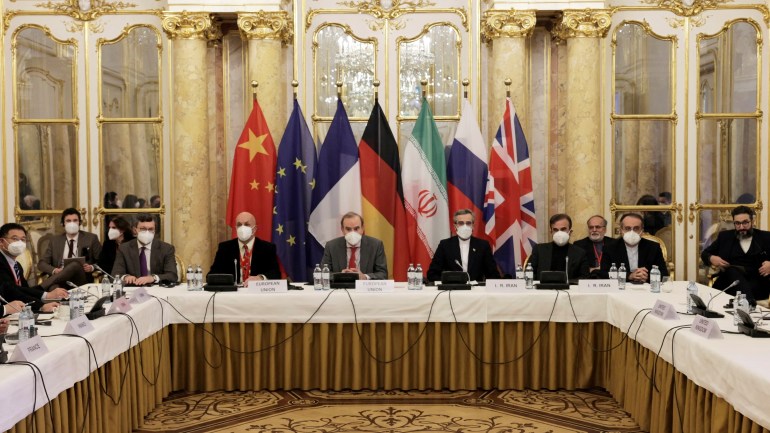The US special envoy to Iran, Robert Malley, said that Washington's decision to withdraw from the nuclear agreement was disastrous and caused real damage to the security and stability of the region, and that the chance to revive it still exists, but it is diminishing day by day.
The US special envoy to Iran added in an interview with CNN that the United States' preferred option is to return to the nuclear agreement with Iran, but that will not be available forever.
The US special envoy to Iran also announced that Tehran would face further isolation if it chose the path of not returning to the nuclear agreement.
Several rounds in Vienna between Tehran and the major powers failed to reach a formula for reviving the Iranian nuclear agreement (Reuters)
In a parallel context, the Chairman of the US Senate Foreign Relations Committee, Democratic Senator Bob Menendez, and the Republican member of the Committee, Senator Lindsey Graham, presented a bill to monitor Iran's missile program and its ability to manufacture nuclear weapons.
The bill would create a joint task force led by the State Department to monitor and report regularly to Congress on Iran's nuclear weapons and missile activities.
The legislation requires the secretary of state to submit an annual diplomatic strategy for dealing with Washington's partners and allies regarding Iran's nuclear and missile activities.
Senator Graham said - in a statement - that the legislation requires Washington to cooperate with regional allies such as Israel.
He added that regardless of the nuclear negotiations, the US administration should continue to monitor Iran's nuclear program closely.
stumbled back
The United States withdrew from the agreement on the Iranian nuclear file in 2018 under its former president, Donald Trump, and re-imposed economic sanctions on Tehran.
Iran responded a year later by beginning to retreat from many of its basic commitments, most notably its uranium enrichment levels.
The administration of US President Joe Biden later sought to return to the agreement.
Since 2021, Iran and the parties that are still in the agreement - with indirect US participation - have started discussions in Vienna aimed at reviving it.
The talks made progress that brought those concerned close to reaching an understanding, but they have been suspended since last March, with points of disagreement remaining between Tehran and Washington, especially with regard to Tehran's demand to remove the name of the Iranian Revolutionary Guard from Washington's list of foreign terrorist organizations.
In the Vienna talks, Tehran also demanded US guarantees not to repeat the scenario of Trump's withdrawal from the agreement.
The "Joint Comprehensive Plan of Action" (the official name of the nuclear agreement) was reached after initial contacts took place between Iran and the United States in the Sultanate of Oman, which maintains good historical relations with the two parties.

